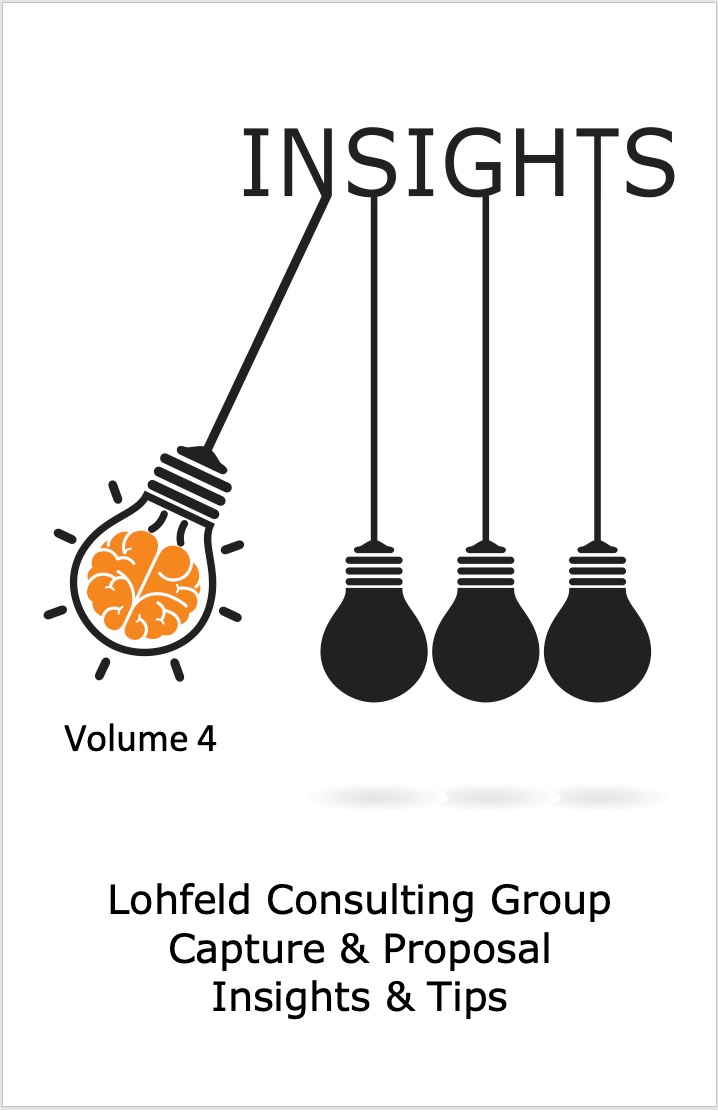Laying the groundwork for a great proposal kickoff

Kickoff meeting preparation tasks
Prepare the kickoff meeting:- Agenda
- Slide template
- Calendar invitations
- Physical or virtual meeting space
Proposal planning and execution tasks
Prepare the proposal:- Schedule and milestones
- Assignment list (with a description of roles and responsibilities)
- Template to acquire/validate questions about the request for proposal (RFP)
- Plan to identify, assess, and mitigate proposal risk
- Data call plans and templates
- Proposal review plans or instructions
- Proposal production plans or instructions
- Process for producing and logging graphics
- Plans and processes for obtaining internal company signoffs
- Submission plan
- Incentives, morale boosters, and awards for proposal participants
Administrative tasks
Prepare the following administrative materials:- Contact list (with email and phone number information)
- Out-of-office/vacation/leave list
- Proposal communications plan and list of meetings
- Security access and logins for proposal participants, including subcontractors
- Proposal tool/system training, as needed
Capture/opportunity management tasks
Prepare the capture/opportunity:- Win strategy
- Value proposition(s)
- Budget of strengths
- Matrix of strengths against evaluated criteria
- Proof points for strengths
- Capture/opportunity plan information
- Competitor information
- Teaming partner information
Writing-related tasks
Prepare the following materials needed for writing as time allows:- Draft compliance matrix
- Draft outline
- Draft executive summary
- Draft solutions and other content
- Pre-RFP content (developed during the pre-RFP phase (if any))
- Draft graphics
- Resumes
- Past performance
- Style sheet and descriptive terminology
Business volume tasks
Prepare the following materials needed for the business volume, which will most likely be discussed in two separate meetings—one for the prime contractor and a second for subcontractors:- Business case description
- Teaming documents
- Subcontractor documents, including statements of work (SOW)
- Small business objectives or plan
- Preliminary rate request or preliminary rate data
- Spreadsheets
- Bill of materials (BOM)
- Other plans or deliverables required in the volume
Paperback or Kindle
10 steps to creating high-scoring proposals
by Bob Lohfeld
contributors Edited by Beth Wingate
Subscribe to our free ebrief
Teaming friends, frenemies, and enemies—12 tips to mitigate harmful effects
Did you know that contracting officers spend up to 20% of their time mitigating disputes between teaming partners? In an informal poll we conducted on LinkedIn last month, 40% of respondents classified their teaming partners as “frenemies” on their last bid.
Explore Further
- Advice (446)
- AI (5)
- APMP (17)
- Business Development (198)
- Capture Management (197)
- Favorite Books (5)
- Go-to-Market (27)
- Graphics (6)
- Lohfeld Books (3)
- Past Performance (58)
- Post-submission Phase (15)
- Pre-RFP Preparation (211)
- Proposal Management (270)
- Proposal Production (60)
- Proposal Reviews (27)
- Proposal Writing (77)
- Pursuit Phase (89)
- Research Report (2)
- Resources (60)
- Tools & Tips (259)
- Training (10)
- Uncategorized (220)

Sign Up for INSIGHTS and Download your FREE book
We'd love to help you with your proposals. Enjoy our complimentary Lohfeld Consulting Group Capture & Proposal Insights & Tips book with your FREE subscription to our Insights Newsletter.
GET YOUR FREE BOOK




